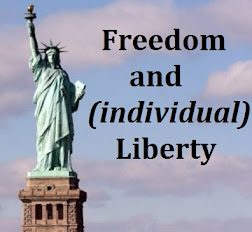 |
| Source:Rob Bluey- Sally McNamara, is a foreign policy analyst for the Washington based right-wing political action network The Heritage Foundation. |
"Lou Dobbs Tonight, CNN, June 18, 2007"
From Rob Bluey
Europe in some ways at least East of the United Kingdom West of the Slavic states and perhaps South of Scandinavia (and this will be the end of the geography segment of this post) have been somewhat at least moving to a United Europe (whether its called the European Union or something else) for about sixty years now.
After World War II with the creation of the European Union (Europe's own version of the United Nations) partially in response to the Soviet Union and the Cold War but also for economic reasons, Mainland Europe East of the United Kingdom and West of the Slavic states (I'm sorry) is a region of around 400M people with a total GDP approaching the United States with similar living standards.
So Europe 60 years ago figured they would be better off working together including a single currency that started around 2000. Instead of several countries that are small compared with the biggest countries in the world both physically and population working by themselves.
Europe figured if they worked together and traded they as a union would have a bigger say in the world, then if they were all by themselves. France, Germany, Italy, Spain, etc could all be states or provinces in America, Canada, Mexico, Brazil, China, Russia etc, but together they would be a huge country both physically about the size of Mexico. And in population, together they would be bigger than America. And by in-large the European Union has been a huge success.
Europe does have a bigger more influential say in the world united than they would separately. And all of the large States in the European Union are all Economic powers. The question is how far down this road of unifying would the European Union go.
I personally would like to see them come up with a unified defense force that could take a lot of pressure off the U.S. Military as well as a unified foreign ministry and see both of these organizations run by the E.U. Executive for the same reasons. But how much farther down this road of unification would Europe go, because they already have a President, an executive branch, and an elected legislature, as well as a high court.
Personally I don't see the United Kingdom ever becoming part of the European Union as one Nation. I believe they'll always hold on to their independence. But I could see France, Germany, perhaps Ireland and economic boost they would get out of that as being a state instead of a tiny country of around 4M people. I could see Spain, Italy and a lot of the smaller European nations.
Another issue would be borders, how far would a United Europe go, economically most if not all the Slavic states aren't ready to be in the European Union. And they all have questionable human rights records that the EU takes seriously, which is why Turkey has never made it into the European Union.
I could see a United Europe that lets say included South Ireland, but not Britain and then went from western mainland Europe to the Baltic States, perhaps even Poland thats moved quickly down the road of being a liberal democracy or a social democracy. And then going as far south from Portugal to Italy, with the Balkan States not ready for the EU yet.
European unification would make Europe a super state of 400M people or so and about the size of Mexico physically. And perhaps the largest economy in the world. But if this were to happen, it shouldn't be forced on Europeans and they should have to approve it.
Personally a United Europe would be great for the United States when it comes to our foreign policy and national security, because we would have another strong partner on our side that could take a lot of pressure off of us. But we would also have another economic competitor with a lot of money that would be able to invest it all over the world. This wouldn't be for us to decide but the European people to deal with and decide one way or the other.


















